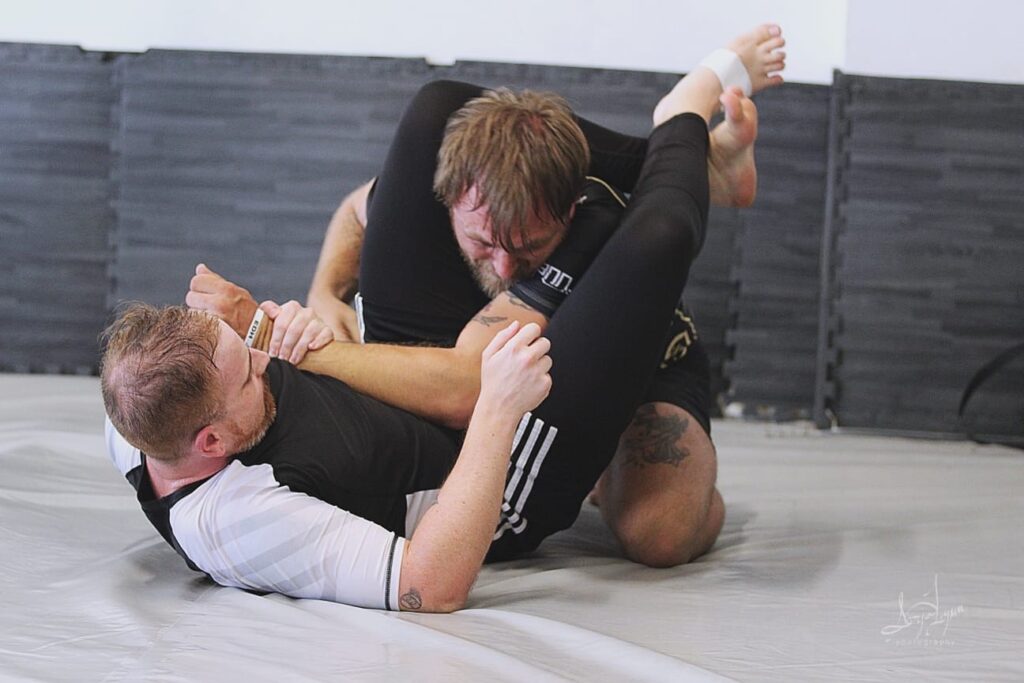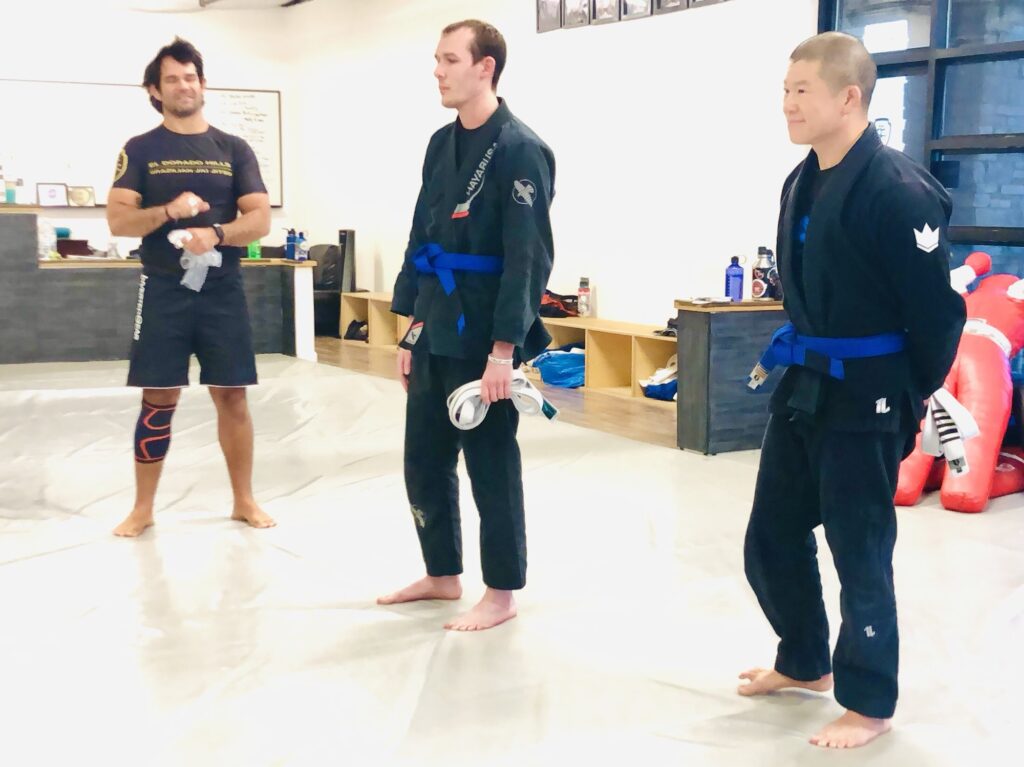Brazilian Jiu-Jitsu is widely known for its practical application as a martial art and self-defense system, but its health benefits extend far beyond the mats. It offers a unique combination of mental and physical engagement, making it one of the most comprehensive ways to stay fit. Personally, my journey with Jiu-Jitsu not only improved my grappling skills but also motivated me to incorporate strength training and flexibility work into my routine. This holistic approach has made me stronger, more flexible, and overall healthier. Let’s explore the many benefits of BJJ and why it’s becoming a popular choice for individuals of all fitness levels.
Full-Body Workout:
One of the immediate benefits I noticed with Jiu-Jitsu was how it worked my entire body. Every roll, drill, and technique engaged multiple muscle groups, whether I was sweeping an opponent or escaping a difficult position. Over time, this intense full-body workout improved my overall muscle tone, strength, and endurance. Additionally, when I started combining my Jiu-Jitsu training with strength exercises, I saw even greater improvements in my physical capabilities both on and off the mat.

Core Strength:
The core is essential in Jiu-Jitsu, and I quickly realized how often I relied on it for almost every movement—whether defending a guard pass or attempting a submission. Developing my core through both BJJ and targeted strength training has not only enhanced my grappling ability but also improved my posture and reduced my risk of injury in daily life.
Cardiovascular Health:
BJJ classes are physically demanding, especially during live sparring or “rolling.” My heart rate would soar, and this consistent cardiovascular activity has significantly improved my endurance over time. I’ve also noticed improvements in my overall stamina during other activities, and regular practice has helped lower my stress levels and promote heart health.
Weight Loss and Fat Burning:
When I first started BJJ, I was looking for a fun way to stay active without the monotony of traditional workouts. Little did I know, BJJ would be an excellent tool for weight loss. A typical class can burn a significant number of calories, and it wasn’t long before I began shedding pounds and building muscle. As I integrated strength training into my routine, the results became even more pronounced, with greater fat loss and increased muscle definition.

Metabolic Boost and Sustainable Weight Loss:
In addition to the intense workouts, BJJ’s combination of aerobic and anaerobic exercises helps boost metabolism. I found that my body was burning calories long after training, thanks to the “afterburn” effect. What makes this sustainable is how mentally engaging BJJ is—there’s always something new to learn, so it never feels repetitive. This has kept me consistent in my training, leading to long-term weight management.
Improved Balance and Coordination:
Jiu-Jitsu has a strong emphasis on body control and balance. Grappling forces you to be aware of your positioning and how to control an opponent, which in turn improves your coordination. I found that this awareness has positively affected other areas of my life, from playing sports to preventing injuries in everyday movements. The agility I’ve gained through BJJ has even made my strength and flexibility training more effective.

Mental Benefits: Focus and Concentration
One of the things I love most about Jiu-Jitsu is the mental challenge. Every roll is like a chess match, requiring intense focus and problem-solving as you react to your opponent’s moves. Over time, I’ve found that this ability to stay focused under pressure has carried over into my daily life, helping me manage stress more effectively and improve my work performance.
Stress Relief and Mental Well-Being:
Like many people, I initially turned to exercise as a way to manage stress. Jiu-Jitsu, however, provided a level of stress relief I hadn’t experienced before. The physical exertion releases endorphins, and the mental focus required during class helps distract from any anxieties. After a tough day, stepping onto the mats and sparring provides a healthy way to release pent-up frustration. This feeling of catharsis has been instrumental in improving my mental well-being.
Self-Defense and Confidence:
One of the most empowering aspects of BJJ is its effectiveness in self-defense. While I initially joined for fitness, the confidence I’ve gained from learning how to handle myself in difficult situations has been life-changing. Jiu-Jitsu teaches techniques that allow a smaller person to control and even subdue a larger opponent, which has helped boost my self-confidence both on and off the mats.
Long-Term Health and Longevity:
Incorporating Jiu-Jitsu into my lifestyle has made me more conscious of my overall health. I’ve adopted better eating habits, improved my sleep patterns, and become more dedicated to maintaining a strong and flexible body through additional strength and flexibility training. BJJ’s holistic approach to fitness—combining cardiovascular health, strength, flexibility, and mental sharpness—has set me on a path for long-term health and well-being.

Brazilian Jiu-Jitsu has transformed my health in ways I never anticipated. Not only has it improved my physical strength and flexibility through a combination of BJJ and supplementary training, but it has also sharpened my mind and given me a sense of confidence. Whether you’re looking to improve fitness, reduce stress, or challenge yourself mentally, Jiu-Jitsu offers a comprehensive and sustainable solution. If you’re ready to take control of your health, I highly recommend stepping onto the mats and experiencing it for yourself.
